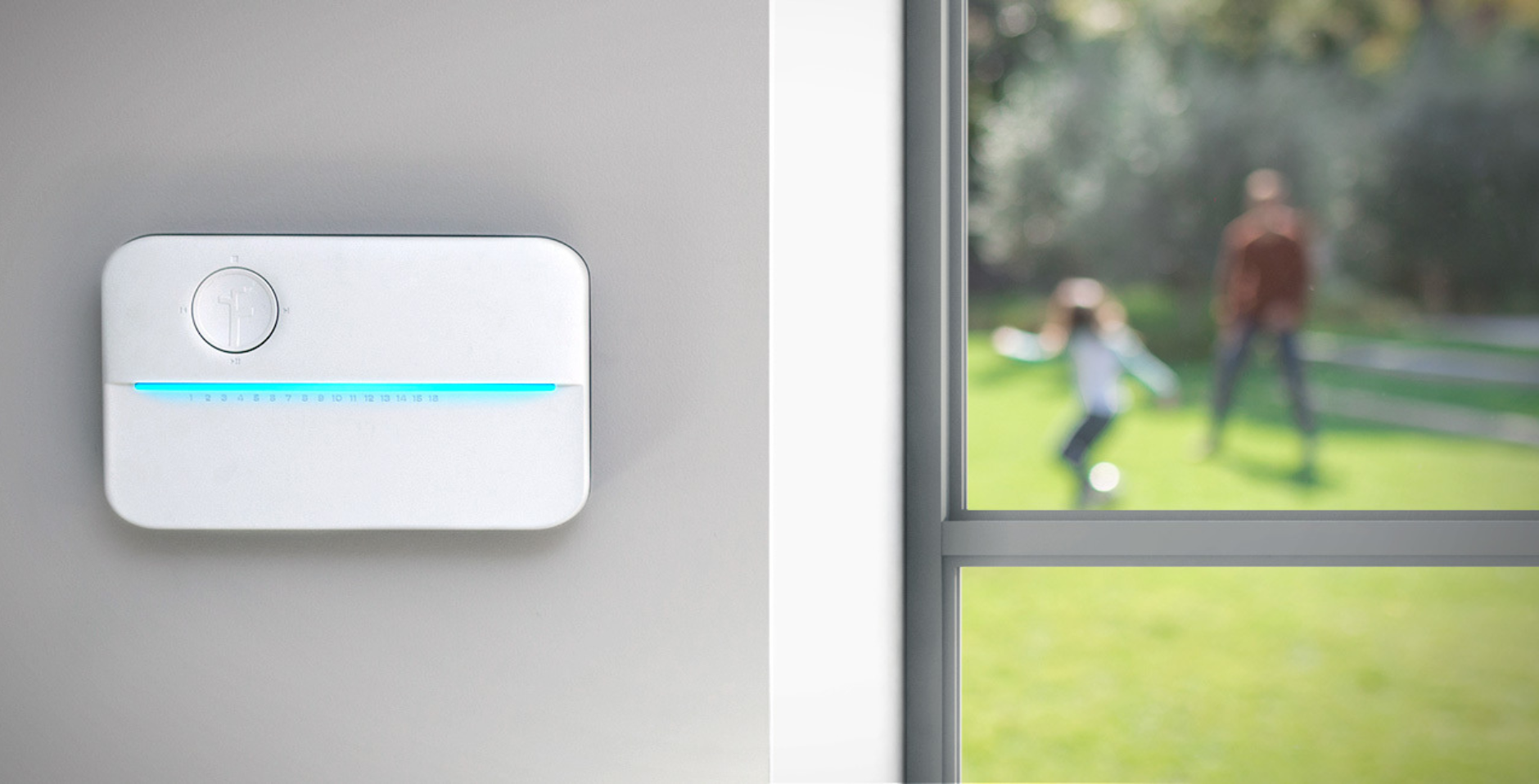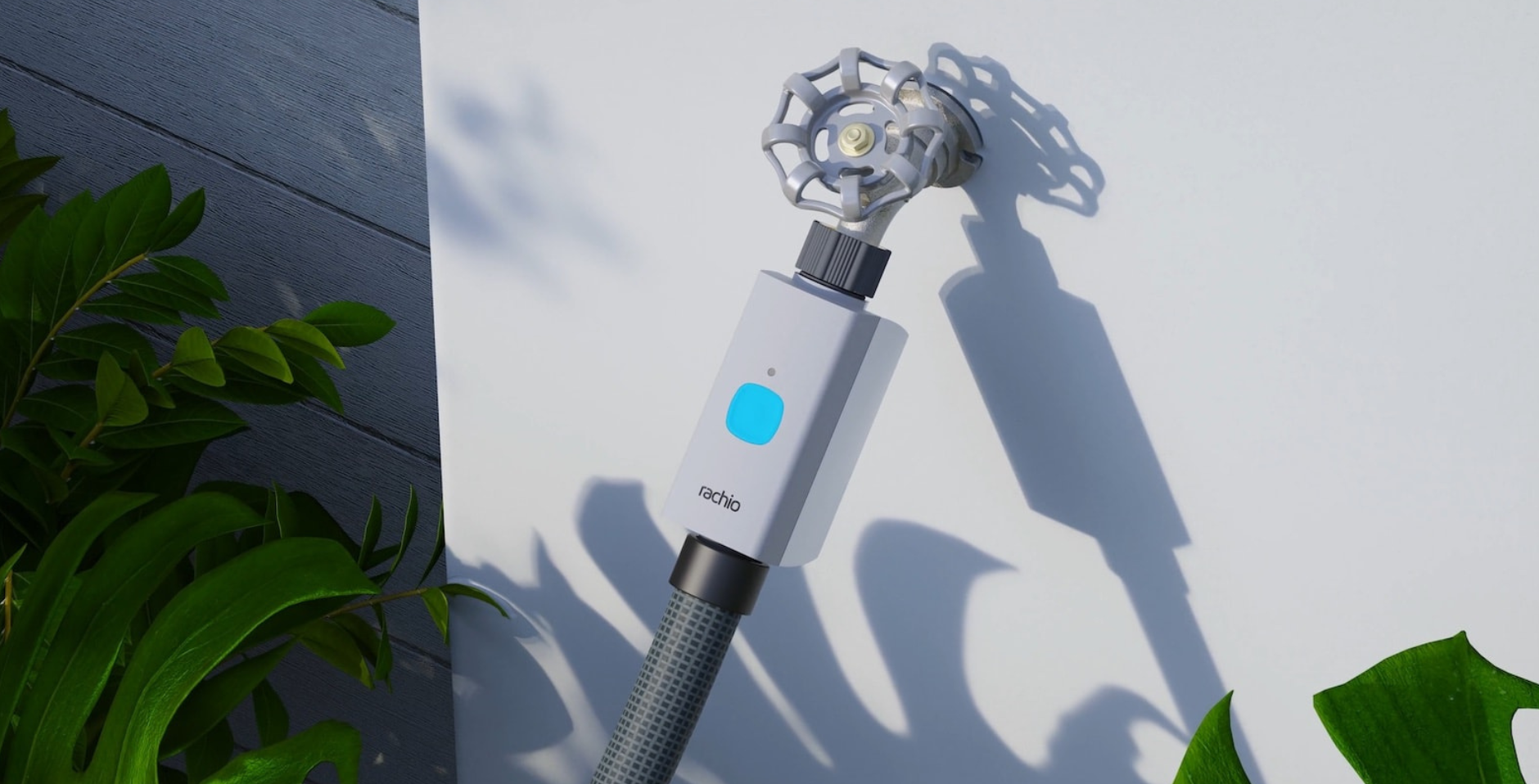
How Rachio's Inbound Shipping Strategy Lowered Shipping Costs and Reduced Carbon Footprint
Rachio used DCL's strategic warehouse locations to lower inbound and outbound shipping costs, naturally reducing their overall carbon footprint.
Rachio invented the first smart sprinkler controller, and their third generation Rachio Smart Sprinkler Controller connects with WiFi and uses Weather Intelligence™ to water your yard only when your plants need it. Launched 11 years ago, Rachio has saved over 200 billion gallons of water. With sustainable watering and environmental responsibility as a core tenet of Rachio’s mission, the company also has a recycling program for old controllers. No need to toss your old one into a landfill; Rachio can recycle it (regardless of controller brand), or refurbish it for resale.
DCL Logistics ensures Rachio products are fulfilled accurately and get to customers quickly. Rachio CEO, Kim Sentovich says, “DCL really cares about our business. When we need things to get done, DCL jumps into action by digging into the situation so they can help us to figure it out. With DCL, things just get done.”
How DCL's Helped Rachio Lower Shipping Costs While Reducing Their Carbon Footprint.
- Problem: Rachio was overpaying on inbound and outbound shipping by distributing their products in a nationwide inventory model—storing it in Kentucky and in Northern California.
- Solution: By moving all inventory to DCL’s Los Angeles facility, products were closer to both locations where Rachio products are imported: through Mexico and the port of Long Beach.
- Result: Rachio saw cost savings on both inbound and outbound shipping costs, plus lowered their overall carbon footprint due to eliminating excess shipping.
Read more below about Rachio’s water conservation efforts, and how DCL has helped improve their inventory strategy, grow overall revenue, and scale their brand.

Strategic Warehouse Location Can Save Costs and Lower Carbon Footprint
When Rachio initially began working with DCL Logistics, they shipped inventory to DCL’s Northern California and Kentucky warehouses. But Kim noticed a cost savings opportunity if they switched locations. This change would also naturally lead to an overall lower carbon footprint.
Kim says, “I did a thorough network study to analyze both inbound and outbound freight costs based on where our shipments were being imported, where they were ending up, and considered whether it made sense to store and fulfill from these locations.”
Rachio products are produced in Mexico and Malaysia. Some are trucked over the Mexico border and others come in through the port of Long Beach.
Often brands decide to store and fulfill products close to customers to save on outbound shipping, but in this instance, it was clear that a more cost-effective solution was to store and fulfill out of DCL’s Los Angeles facilities. By housing inventory closer to both inbound manufacturing locations, Rachio found economic and environmental benefits.
Kim adds, “By consolidating our inventory to the Los Angeles facility, we decreased environmental pollution from the inbound transportation while continuing to look at cost savings and lowering our carbon footprint from an outbound standpoint.”
“I’ve been at companies where you end up having to build in percentages based on fulfillment issues that end up in cancellations. If your 3PL is four days behind, you’re going to have to assume that 10% of these orders are not going to ship because people are going to put in a cancellation form. With DCL, we’ve never had to do that.
Finding Great Supply Chain Partners Can Boost Overall Revenue
When your entire supply chain runs smoothly, that’s where brands find the most growth opportunity.
“Usually the conversation you’re having with your 3PL is about tail-end shipping,” Kim says, “For example, how it takes them four days just to get your products out of the distribution center because they’re behind on staffing or something else. I’ve dealt with a lot of 3PLs over the years. With DCL, that has never been an issue. We’ve never had a backlog of any kind, even around the holidays. DCL’s ability to get things out immediately shouldn’t go understated. It’s actually a pretty big deal.”
A 3PL should act as an extension of your brand’s operation. Their ability to get orders out quickly, reliably, and accurately is a direct reflection of your brand and can play a big role in overall revenue growth.
Kim says, “I’ve been at companies where you end up having to build in percentages based on fulfillment issues that end up in cancellations. If your 3PL is four days behind, you’re going to have to assume that 10% of these orders are not going to ship because people are going to put in a cancellation form. With DCL, we’ve never had to do that.”
While cancellations may seem like a small detail, they can hurt a brand in a big way. Especially if a large percentage of cancellations occur during a sales rush, holiday deadline, or your brand’s biggest peak season. DCL helps to avoid these difficult situations. According to Kim, “DCL’s level of service means we don’t have that problem. Our customers are getting orders in a timely manner, which means that we’re not dealing with order cancellation as a threat to our revenue.”
More Gets Done When You Work with a 3PL That Picks Up the Phone
Most 3PLs manage fulfillment for many brands at once—sometimes hundreds. Like any service model, there can easily be businesses that don’t get prioritized. At DCL, we purposely keep our customer roster small, so that we can fully dedicate our teams to each customer’s needs.
Kim says, “I can actually call the DCL team, and they’ll pick up—I can reach the Operations Director of the Los Angeles facility, our Account Manager, the Transportation VP. The people at DCL are really good about being available to us and caring about our business.”
With a true partnership, a brand is able to accomplish more, faster. Clear and proactive communication means both sides are on the same page, which means business decisions can be made proactively, not reactively; problems are resolved faster, and growth opportunities are greater.
Kim says, “We are partnering on multiple levels within our organizations, even at very senior levels. This coordination makes a big difference in how your business is run and helps make sure things get done.”

About Rachio
Rachio is your smart yard headquarters. Our Rachio Smart Sprinkler Controllers and Smart Hose Timers put watering control in your hands. We help to make sure your plants get the right amount of water with smart scheduling, Weather Intelligence™, smart integrations, and more. With the Rachio app, you can control and monitor your watering from anywhere.
Rachio was founded to save water and prevent sprinklers from watering in the rain. As a certified B Corp, Rachio maintains the highest standards of verified social and environmental performance and accountability. As we add new products to the Rachio Market, our collective water savings continues to grow; to date, Rachio users have saved XXX billion gallons of water (and counting!).
Rachio works with Blue Star Recyclers, a 501c3 social enterprise which recycles electronics and creates local jobs for people with disabilities while ensuring old controllers don’t end up in landfills. Our sprinkler controllers are all EPA WaterSense labeled as a result of proven water savings. When customers choose a Rachio controller, they can rest easy knowing that the device has met rigorous standards for water conservation; our controllers are tested and certified to water a minimum of 20% more efficiently than conventional sprinkler controllers, and the majority of our users save 50% on their outdoor watering with Rachio.
Visit www.rachio.com to learn more.







